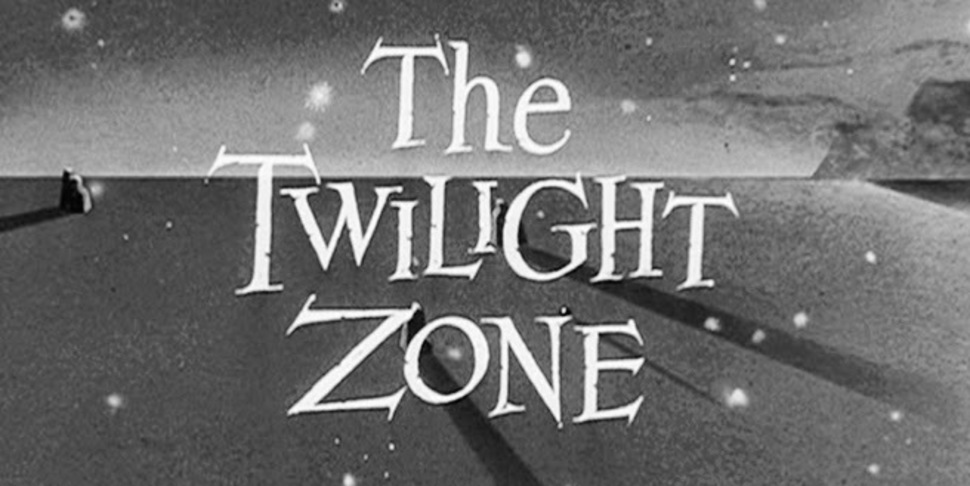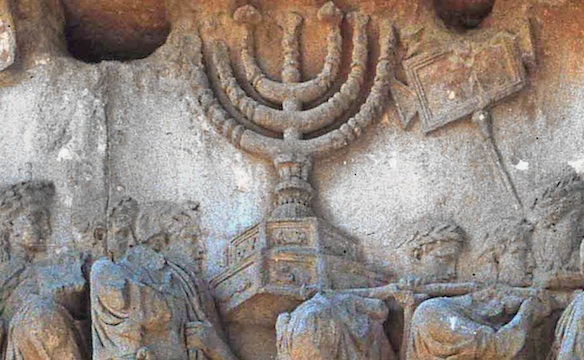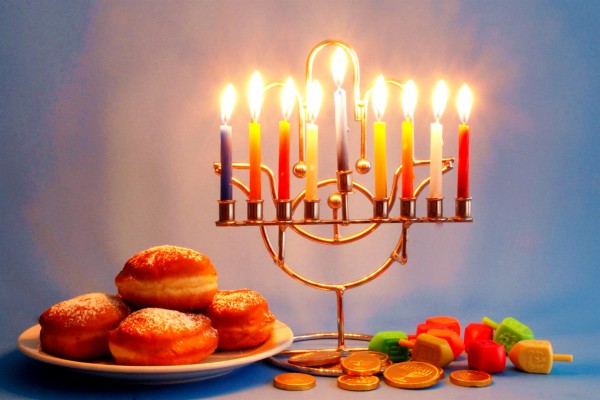Click here to download PDF
Giving in to the “Yetzer”?
This week’s Parsha opens up with the laws of “Yefas To’ar” – the beautiful captive woman that the Jewish Soldier wants to take. This is one of the laws that are hardest to understand philosophically. Rashi (21:11) says: “The Torah did not issue these laws [for any other reason] except as a countermeasure for the evil inclination. Because if Hashem would not permit her he would marry her even against the Torah prohibition. But if he does marry her at the end he will hate her as the next batch of laws discuss a scenario when a man has two wives, one of which he hates (and that one is this former captive woman), and in the end he will have a “Ben Sorer u’moreh”- a rebellious son from her and that’s why all these laws are together”. This Rashi is virtually impossible to understand! Since when do we make concessions to a person’s Passions?!? If it’s “wrong”, it’s man’s responsibility to conquer his passions or suffer the consequences! On the other hand, if this is a test that’s humanly impossible to pass, then it shouldn’t be considered “wrong” at all! It’s implied that it’s something “wrong” but the Torah permitted it anyway. How do we understand this? Furthermore, Rashi’s language is hard to understand. It sounds like the Torah made a concession to the “Yetzer Hara”, but that goes against the literal opening words of Rashi, that the Torah Commands as a countermeasure (“Keneged” means ‘against’) which means that this is not a concession to the “Yetzer Hara”, but rather a way to defeat him!! How does that fit with the continuation of Rashi that says if Hashem won’t permit her he will take her in a prohibited manner?
War of “Reshus” vs War of “Mitzvah”
The answer lays in the circumstances of this mitzvah of “Yefas To’ar”. Rashi stresses that the circumstances are a “Milchemes Reshus”-a war that the Jewish leadership decided to wage through the chain of command of the king and the Sanhedrin and all others that are involved in the decision-making and strategy. This type of War has the scenario of taking captives, as opposed to “Milchemes Mitzvah”- a Torah obligatory War, like the war against Amalek and the Seven Nations, where we kill everyone and don’t take captives. Let us analyze this idea of “Milchemes Reshus” – why is it called “Reshus”?
What is “Reshus”?
The term “Reshus” seemingly has a wide range of meanings. Like in the context of “War of Reshus” it means ‘voluntary’ i.e. the person can make his own decision regarding the matter as it is neither commanded or prohibited. We find that it means ‘power’/’authorization’ or ‘government’/’authorities’. It also means ‘domain’ as in “Reshus HaYachid”- private domain and “Reshus Harabim”- public domain. How do we understand that this one word has all these seemingly different meanings?
Power & Place
Place and Power, in the sense of law and authority, are actually functions of each other. A ruler of a country is only the ruler in that country. His authorities are solely and only where he reigns. Outside of that domain he is a nobody! The opposite is also true. How do we divide up state lines? How do we divide up countries that share the same continent? Where the jurisdiction of one ends, and the other one begins, is the border! What separates countries is the fact that they are ruled by different rulers! Therefore, the word “Reshus” means domain and it means the authority as the two are actually functions of each other. What is the definition of ‘power’ and ‘authority’? When it is my choice it’s called that I have the power and authority. Whoever is in the position to choose is the authority figure. When something is ‘voluntary’ it’s totally the person’s own choice and that is power! That’s why “Reshus” means domain, authority, and it means voluntary because when it’s someone’s own choice that is when he is in control.
Why is Hashem called “HaMakom”
With this we can have an angle on one of the many meanings behind why we refer to Hashem as “HaMakom” – the place. Hashem’s Will is the one and only place that there is – which means His Will Reigns Supreme! Any “other domain” where there is “another ruler” is just an Illusion! The only ‘real place’ and hence the only ‘real power’ is Hashem’s Will! With this we could have an appreciation of an expression we find in Chazal. When a person chas v’shalom questions Hashem being the one and only Power the expression is: “Maybe chas v’shalom there are “Shtei Reshuyos”- two domains. If there is one and only Power then there is only one domain!
The “Mutar” & “Asur”
The Halacha lays out the laws of Hashem’s domain. We are taught that whatever the Torah outlawed is against Hashem’s Will and not part of His domain – which means it’s outside of reality! The “Yetzer Hara” presents us with an illusion as if what the Torah prohibited is a real option. That’s why he presents himself as the “Sitra Achara”- the other side, as if there are two different domains – Hashem’s side versus his side. We know that that’s all a big illusion that we have to contend with and overcome! When we choose what Hashem wants and reject what is against His will we are actually making a statement of faith that Hashem’s will is not just better – it is reality itself! There are no two sides to the issue – Hashem alone is the one and only domain!
The Twilight Zone
The most confusing illusion of all is the illusion of “Reshus”. The ‘voluntary’ gives us the illusion of having our own space, our own time and having our own turf- “If it’s voluntary – I will decide”. This is the greatest illusion because we are inclined to think that we have our own space where we decide. That is wrong! It contradicts the idea that Hashem is the one and only domain and there is only His Will! What does “Reshus” mean for us? We have to pierce this illusion of “Reshus” and turn it into Mitzvos! Eat and sleep for the sake of being healthy in order to serve Hashem! Have some ‘down time’ or a vacation for the purpose of recharging ourselves to serve Hashem with renewed vigor. If we indulge with these intentions they become mitzvahs! This is the command of “All your deeds should be performed for the sake of Heaven” (Avos 2:17; Orach Chaim siman 231). If we do these things solely and only for own pleasure we are guilty of a negative commandment of “Doo not stray after your heart and eyes” (Bamidbar 15:39; see Mishnah Berura 1:1 in the second Biur Halacha).
Battle of Intentions
This is War! We are constantly in a “battle of intentions” when we deal with “Reshus”. We have to fight our temptations to be sure we are using the world with our “Yetzer Tov” and then it becomes a mitzvah, and to make sure we are not using it with our “Yetzer Hara”, because then it becomes a crime! The Zohar (Eikev 272a) says that we face a battle every time we sit down to eat. Will we conquer the food to incorporate it in our “Tzelem” for the purpose of serving Hashem or will the food conquer us if we eat it out of animal passion and desire? The process of ‘conquering the food’ for Divine service is enhanced by making a bracha before eating it and the experience is further elevated with the after bracha (Derech Hashem section 4 – 9:2). But if we ate it with no shred of Divine service in our intentions, we lost that battle. With this we could understand the kabbalistic ideas that have been popularized in the Hasidic works. There are ‘Divine Sparks’ in our food and in all our Earthly Pleasures. If we take it with our “Yetzer Tov” we are liberating the Divine Sparks that have been in captivity in the ‘shell’ of the physical that appeals to our “Yetzer Hara”. However, if we take it with our “Yetzer Hara” so as to satisfy him, we are clinging to the ‘shells’ and the ‘Divine Sparks’ remain in captivity.
Maariv – converting Turf to Tefillah
This is the secret behind the fact that Maariv was by inception “Tefilas Reshus”-a voluntary prayer. We pray Maariv at times of darkness, which are times of confusion. The Mesilas Yeshorim says that Darkness as two dangers to it. You cannot see the stumbling block, but an even greater danger is that you could mistake a statute for a person or a person for a statue. It’s not clear what’s right and what’s wrong. This is the problem that we are encounter with scenarios of “Reshus”. It could easily be a Mitzvah or Aveira and we have to convert the situation into being 100% mitzvah. We convert the situation of darkness and confusion of “Reshus” into prayer and that would only be accomplished if we use our “Reshus”- own choice to serve Hashem. This is the secret that the allusion to when Yaakov Avinu instituted Maariv is in the words “vayifgah BaMakom” – he reached the place. It means that Maariv is to take the illusion of having our own “Makom”- space and turning it into a prayer and acknowledging the Hashem is the one and only “Makom” – the one and only domain
Milchemes Reshus – National eating
In the macro this is the idea of “Milchemes Reshus” – the war the leadership of Jewish people decided to wage. The circumstances that raised the issue was that the Jewish people did not have enough in their own economy to sustain themselves and they needed expansion and to incorporate new resources. It’s all about incorporating into the Jewish Kingdom which is Hashem’s Kingdom! What the individual does when he ingests his food is what the nation does when they absorb new lands and resources. As Rashi points out: taking captives is the defining factor of a “Reshus” War versus the Mitvah War. It’s about “taking captives” – incorporating people and resources into the kingdom of Hashem. It’s a war till the end….
Winning the War
As we Know from last week’s Parsha, the Jewish soldiers that went to the war were sin-free. Anyone who was afraid of any sin, even the slightest, was sent home from the battlefield. The ones who actually went to battle and conquered and took captives were the most righteous of the Jewish people. There in captivity this righteous Jewish Soldier feels an uncontrollable urge to take this beautiful captive woman. The Beis Yaakov from Izhbitza points out it doesn’t say ‘he desired her’, but rather “desired [something] in her” – meaning to say this woman has something special in her and was meant to be incorporated within the Jewish people! If he takes her with the “yetzer Hara” she will not be a spiritual asset to the Jewish people, rather he will go down in level. To refuse to take her all together is not what the Torah wanted either. She is meant to be incorporated, however she was meant to be incorporated in the proper respectable way. The desire that the man feels for her is a hybrid desire! There is the human passion and there’s also that he desires what’s spiritually special in her. The Tzadik seeks to incorporate everything for the sake of Heaven. There’s a clash of two desires pulling in the same direction! The “Reshus” war that captured her is extending to her herself! She should be incorporated but intention makes all the difference! As a countermeasure to the “Yetzer Hara”, Hashem gave us these laws similar to how we have the blessings before and after food to help us elevate the experience!
Paying for the Battle
It should be noted that since the “Yetzer Hara” was involved, especially according to the Rishonim that he takes her for the first time before going home, there are consequences. Even though the “Yetzer Hara” did not ‘win the war’, there is still a price for this soldier to pay on a personal level. He will end up hating her and having a rebellious son from her. That’s his price to pay but these laws enable us to ‘win the war’ and this woman gets incorporated in the Jewish people, as opposed to the “Yetzer Hara” using her to infiltrate the Jewish people.










